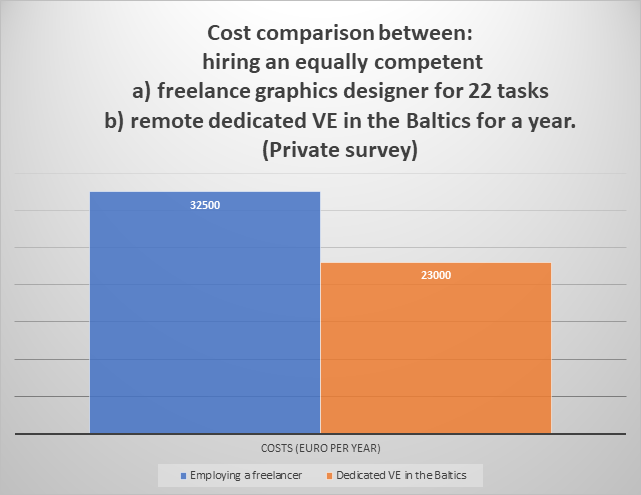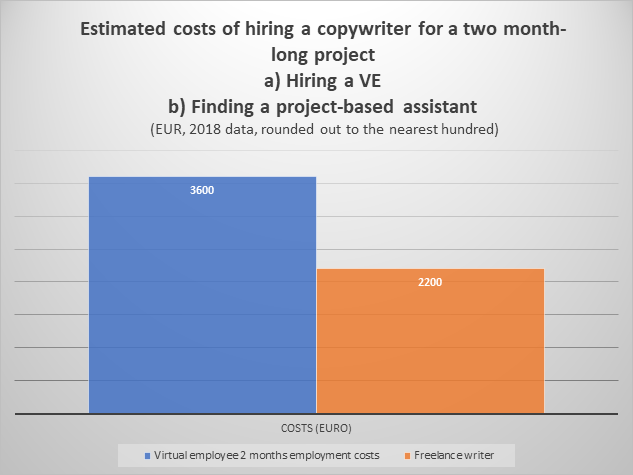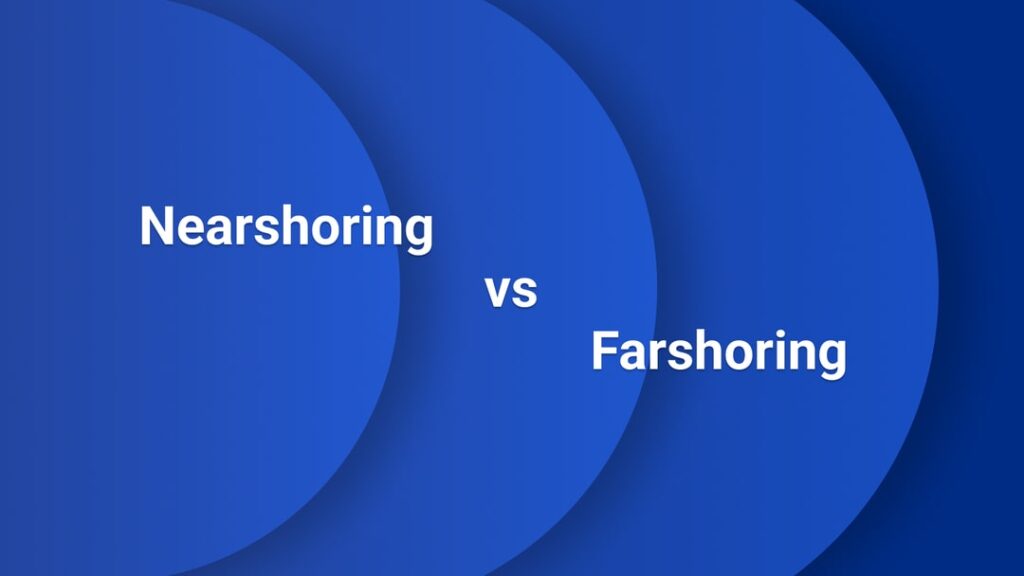Virtual Employees VS Freelancers. Pros and Cons
Overview
There is a constant debate in the business world. It revolves around the comparison of various employee types and finding out which is the best. This article is about the two, arguably most intriguing types of employees in the modern age: dedicated virtual employee and project-based assistants (freelancers).

Which is better and reigns supreme over the other, or are they both great in their ways? It is an exciting and diverse topic, so let’s get into it!
Let's start with the terms:
Dedicated virtual employee – an outsourced employee that performs specific continuous duties for you without physically appearing in your office.
Project-based assistant – a one-time service provider (usually freelancer) who is hired to carry out a specific task.
Why is Virtual Employee > Freelancer
Continuity and longevity
Dedicated Virtual Employees are great for long-term partnerships. They will have the same traits of an in-house employee (skill, dedication, time), but if sourced right, the hiring of an outsourced Virtual Employee will be much more cost-efficient. It can reduce your company’s employee payroll expenditures significantly.
So, for continuity, we got to give the point to virtual employees.
Long-term costs
We’ve compiled a data chart to show the difference in costs.
Our survey took data from 40 experienced freelance graphic designers. The compiled graphic shows the average expenditures your company would have to consider if hiring a project-based assistant for a month vs. choosing a dedicated Virtual Employee.

Our survey showed that, on average, a freelancer would charge around 2700 euros per month compared to 1900 euros for hiring a Dedicated Virtual Employee. Over a whole year, the payroll expenses could shrink in thousands and upwards of 30%. Besides, costs are fixed, while a freelancer could raise his or her rates.
If we are talking about long-term costs, 99% of the time, local freelancers cannot compete with nearshored outsourced employees.
Communication and management of the unexpected
If you are even somewhat experienced in the business world, you know that accidents, unforeseen and force majeure events can happen. You might need quick adjustments, swift decision making and rapid brainstorming to pull-through. Here is one more area where the Virtual Employees have a clear edge.
Almost at all times, dedicated virtual employees work at the same hours as your home office. They are available during peak hours so that workload management can be more efficient and the unexpected – handled without many difficulties. Just as with regular in-house employees, as an employer, you have flexibility, which is always good for business.
Most Freelancers will not offer that.
More control over workflow
The obvious. You have very little control over the creative process of a freelancer. In terms of making corrections and adjustments, things are likely to take longer. It is one of the primary reasons why freelancers are rarely hired long-term. With a remote virtual employee, you have great control since you are their employer and can assign managers or senior specialists to look over their work.
Moreover, if the freelancer (project-based assistant) is busy, but you do like their portfolio and want to hire them precisely, be prepared to wait a long queue. A job that takes a week or a few days to complete could only get done after two, three months even. It is worth taking note of when measuring the benefits of hiring a Virtual Employee since they start working the very instant you hire them.
Freelancers also have their working methods since they work mostly remote. It means that they can work during the night or have earlier hours, be available on weekends, after hours, etc. It can cause more difficulties rather than bring benefits. Virtual Employees adapt to what you do and not the other way around.
Integration into the company & non-financial values
Employee or specialist training is essential to every organization which wants to grow and get better. This is why if you are looking long-term, you have to invest in employees by making them a part of the squad.
Virtual Employees can be almost seamlessly integrated into your operations. You can apply them for training, conferences, invite them to company events, etc. Since they are like a regular employee, just working remotely, they are an actual part of your organization. Instead of just doing delegated tasks, they can add social benefits to your company, as well. These benefits appear by word of mouth, social media posts, and more.
Last but not least, we want to mention sustainability and longevity. If your business is looking for a way to hire an employee for a more extended period of time (6; 10; 12 months, for example) or a fixed long-term schedule, haggling with a freelancer won’t bring much to the table.
Most outsourced VE offices, however, offer the flexibility of not engaging in long-term commitments, so you can avoid the issue of outlining a temp-employment contract. And a free tip for you: since the most efficient way to hire Virtual Employee is to nearshore, and you can avoid a heavy tax burden in your country, you should search for virtual employee solutions companies that take a flat-fee (no fees added).
So, to sum up, VE’s:
- Significantly reduced labor costs vs. a freelancer (~30+% if done right, nearshoring proves to be the best solution)
- Flexible working hours that can be matched to those of your office
- Full-integration into the company is possible
- Great for long term partnerships, yet no need for a long-term commitment
- Smaller tax burden
Why Freelancer > Virtual Employee
Once again, many of these factors depend on your ability to manage or select the employee efficiently. It is a very realistic scenario that nearshoring or outsourcing is not right for you, even at a reduced cost. So in what ways are freelancers the better option than virtual employees?
Autonomy
Freelancers usually work at their own pace and bring quality in the best way they know. If your firm is in IT, and you need one-time legal work, likely, you are not knowledgeable in the sphere. Then it is best to leave the work in the hands of the professional and provide them with autonomy.
Ambition
Project-based assistants (mostly freelancers) are a result of the rapidly evolving technology of the late 20th and the start of the 21st century. In the US alone, there are now close to 65 million of them. It would be best if you looked at these assistants as a tiny business (usually comprised of 1 person) that you choose to hire.
They are more driven to create a great portfolio and do a better job because their long-term goals are more reliant on their day-by-day results. If they mess up on even one task, their reputation could fall. Thus professionals tend to take care of their clients, offer discounts and seek to grow.
No regular payment
Every employer wants to pay only for the hours their employee actually works. Let’s be frank, paid vacations, or paid leave is not your most loved terms. Freelancer hire can be considered the most efficient employment hiring if you have an inconstant workflow.
Freelancers usually charge per completed task, and you are not bound to pay them regularly. It can be a plus for some companies.
Need numbers to convince you? So, if let’s say you run an Investment firm and seek to publish a magazine. You need a copywriter/editor to prepare content.
It would require two months of work (for example)
There is no need for another publication
Publication costs are ignored
Why hire a VE copywriter full-time, when you can select a much more reasonably priced option for employment? See the chart for full detail

The data taken for the blue column was the average fee for nearshored VE’s in the Baltics (1,8 thousand euros per month). The freelance copywriter cost average was calculated by asking 20 different copywriters.
So, in short, these are the most notable freelancer pros:
- More autonomy and independence
- You generally have more control when hiring them
- Ambition and attention to detail
- Need to be paid per completed task
- If the specialist is chosen right, saves upwards of 40% per project
Conclusion
It is our firm belief that both of these types of employees can be suitable for business. They are fundamentally different, however. Whereas project-based assistants could strive in general knowledge-requiring or short-term task completion and attention to detail, they are no match for dedicated VE’s in terms of continuity and accessibility. There is also a lack of guarantees with a freelance project-based assistant, whereas a virtual employee represents your interests with more caution.
You have to pick your poison.
Liked the article and want to discuss remote virtual or outsourced assistance possibilities? Drop us a line, and we would be glad to talk!
Have a question?
Get in touch!
Baltic Assist provides a comprehensive outsourcing solutions that saves costs, enhances efficiency, and strategic decision-making for your business.
Check out other news
Lithuanian-based BPO provider now offers international tax management services
Our collaboration with TTI Nordic began before their Baltic entities launched in February 2023.



